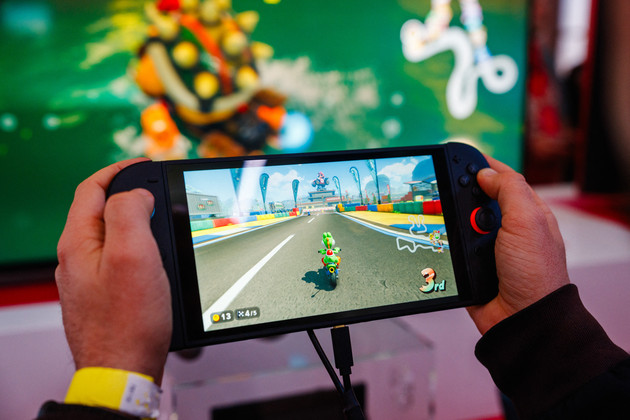Nintendo is currently evaluating the potential impact of recently imposed US tariffs on the pricing of its upcoming Switch 2 console. The company acknowledges that these tariffs, particularly those affecting manufacturing hubs in Vietnam and Cambodia, present a "challenge" that needs to be addressed.
The unveiling of the Switch 2 last week was met with mixed reactions, especially in the US, where the console is slated to retail for $450. This price point, the highest for a Nintendo console to date, prompted speculation that early US trade tariffs might have influenced the pricing decision. However, Nintendo of America President Doug Bowser clarified that the price was determined by the console's upgraded features, including a larger LCD screen and redesigned Joy-Con controllers. He emphasized the company's desire to offer an approachable device that consumers would perceive as a worthwhile entertainment investment with lasting value.
Bowser stated that previous tariffs were not factored into the initial pricing. He highlighted Nintendo's efforts to diversify its manufacturing locations, shifting away from China to countries like Vietnam and Cambodia, as a proactive measure to mitigate the impact of earlier tariffs. However, the latest round of tariffs, which impose significant levies on Vietnam (46%) and Cambodia (49%), poses a more significant problem.
The delay of Switch 2 pre-orders in the US, initially scheduled for April 9, reflects Nintendo's need to assess the potential impact of these tariffs and evolving market conditions. While the June 5 launch date remains unchanged, the company has not yet provided an updated pre-order timeline for the US.
Industry analysts suggest that Nintendo may absorb some of the tariff costs to maintain the $450 price point, especially given expectations that the Switch 2 will be a fast-selling console. However, the Entertainment Software Association (ESA) warns that the tariffs will have a detrimental impact on the entire video game industry. Analyst Daniel Ahmad noted the reciprocal tariffs on Vietnam and Japan are higher than expected, impacting Nintendo if the tariffs go into full effect.
Despite the challenges posed by the tariffs, Nintendo is proceeding with pre-orders in other regions, such as the UK, where initial stock has already been exhausted at some retailers. The company is also using an invite system for pre-orders through its own UK store. In Australia and New Zealand, Nintendo Account holders meeting specific eligibility requirements have the opportunity to register their interest for a chance to be selected to purchase the Switch 2.
It remains uncertain how the US tariffs will ultimately affect the Switch 2's pricing and availability in the US. The situation is complex, with tariffs potentially impacting various aspects of the supply chain and adding to existing cost pressures. Nintendo's decision to delay pre-orders in the US underscores the company's cautious approach as it navigates these economic uncertainties.

















